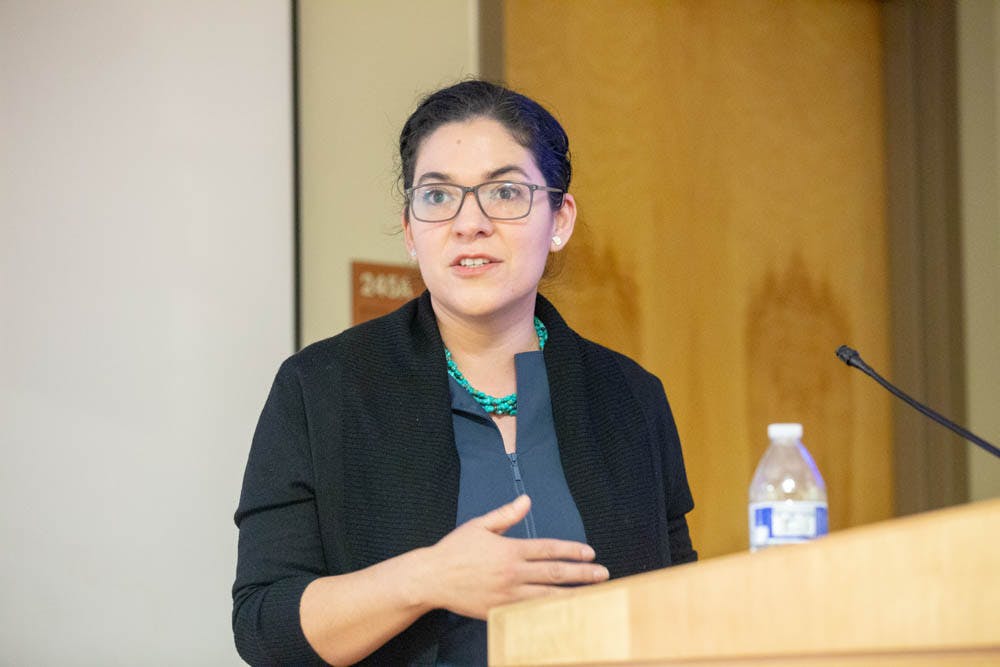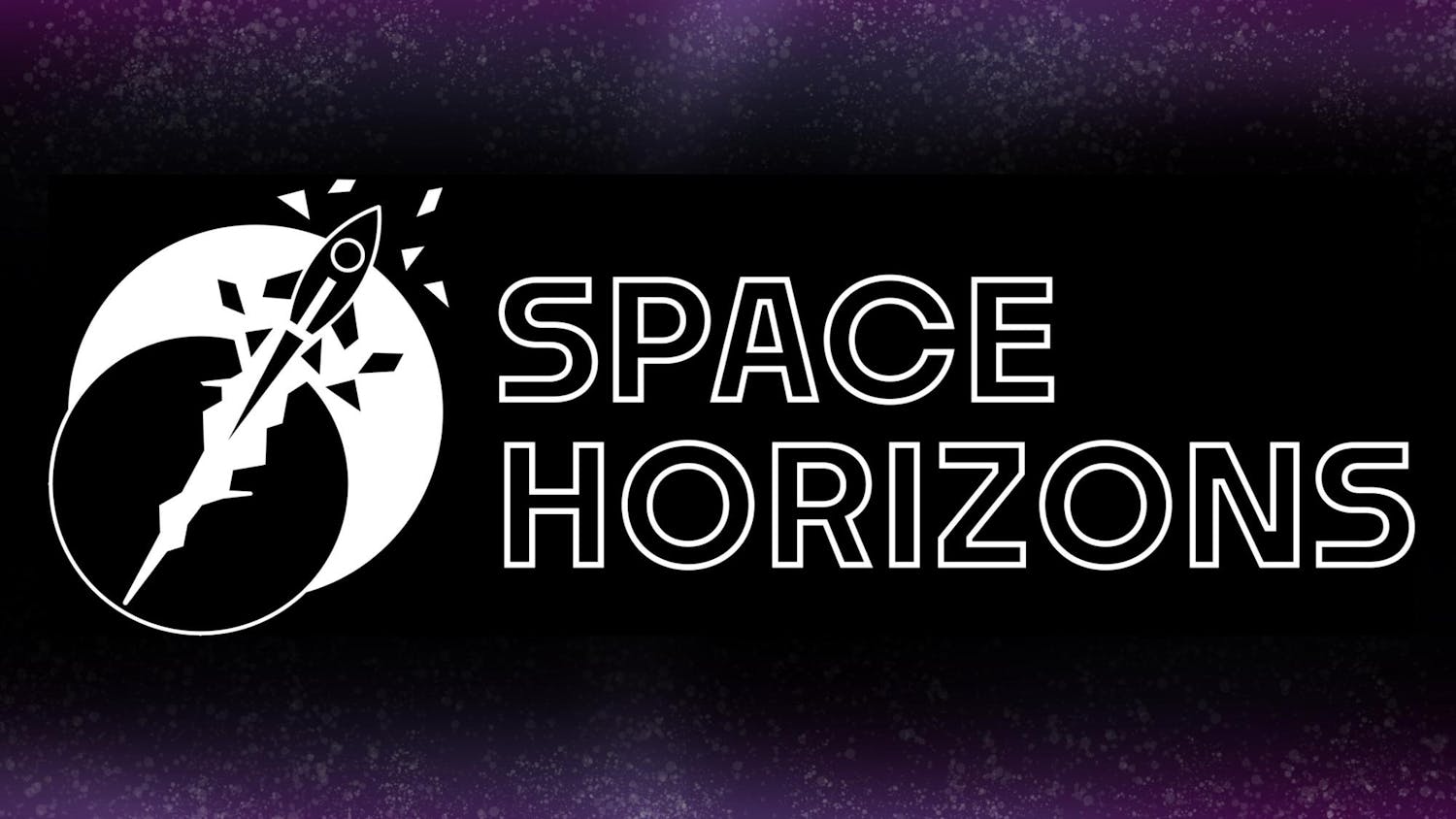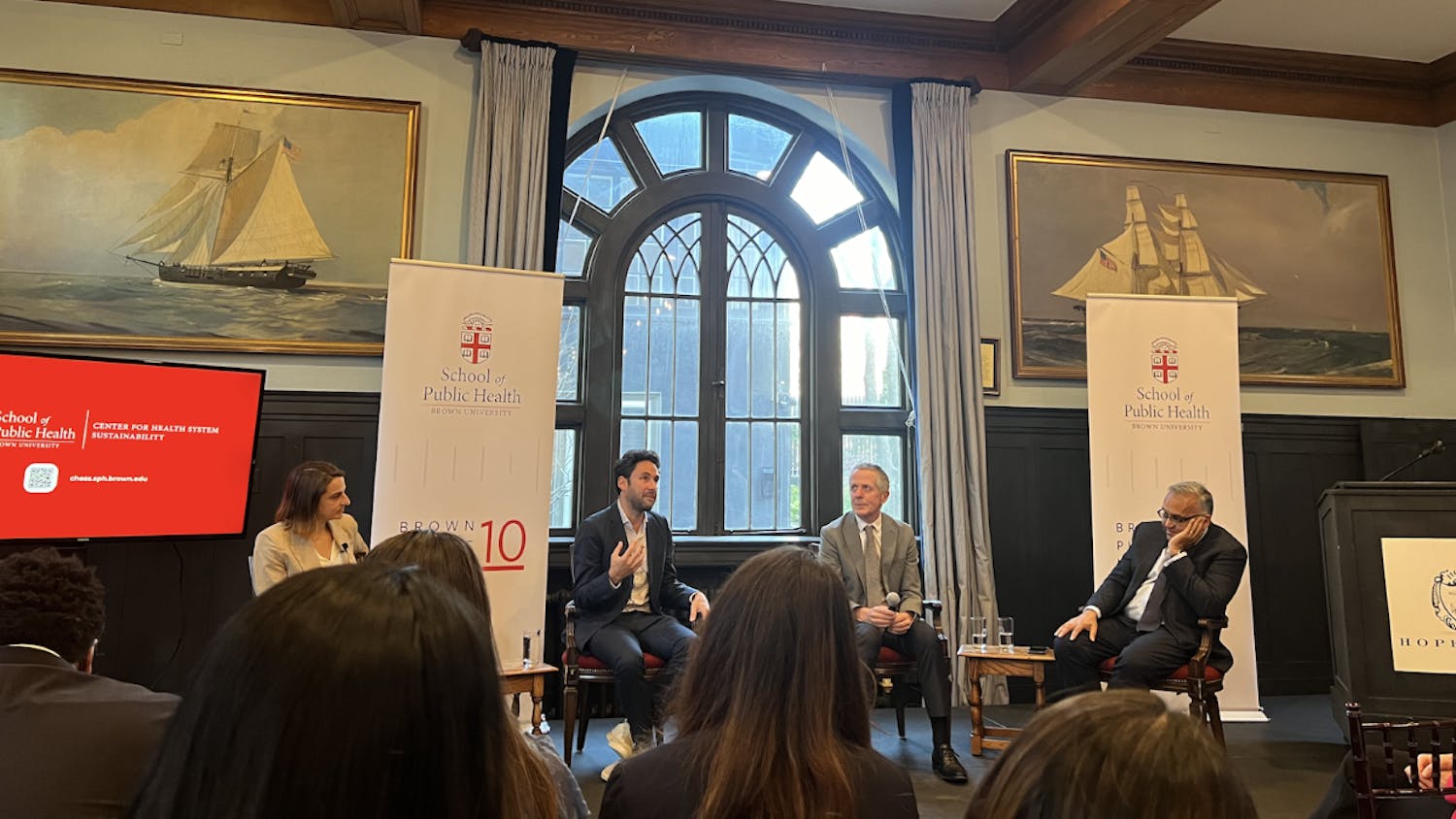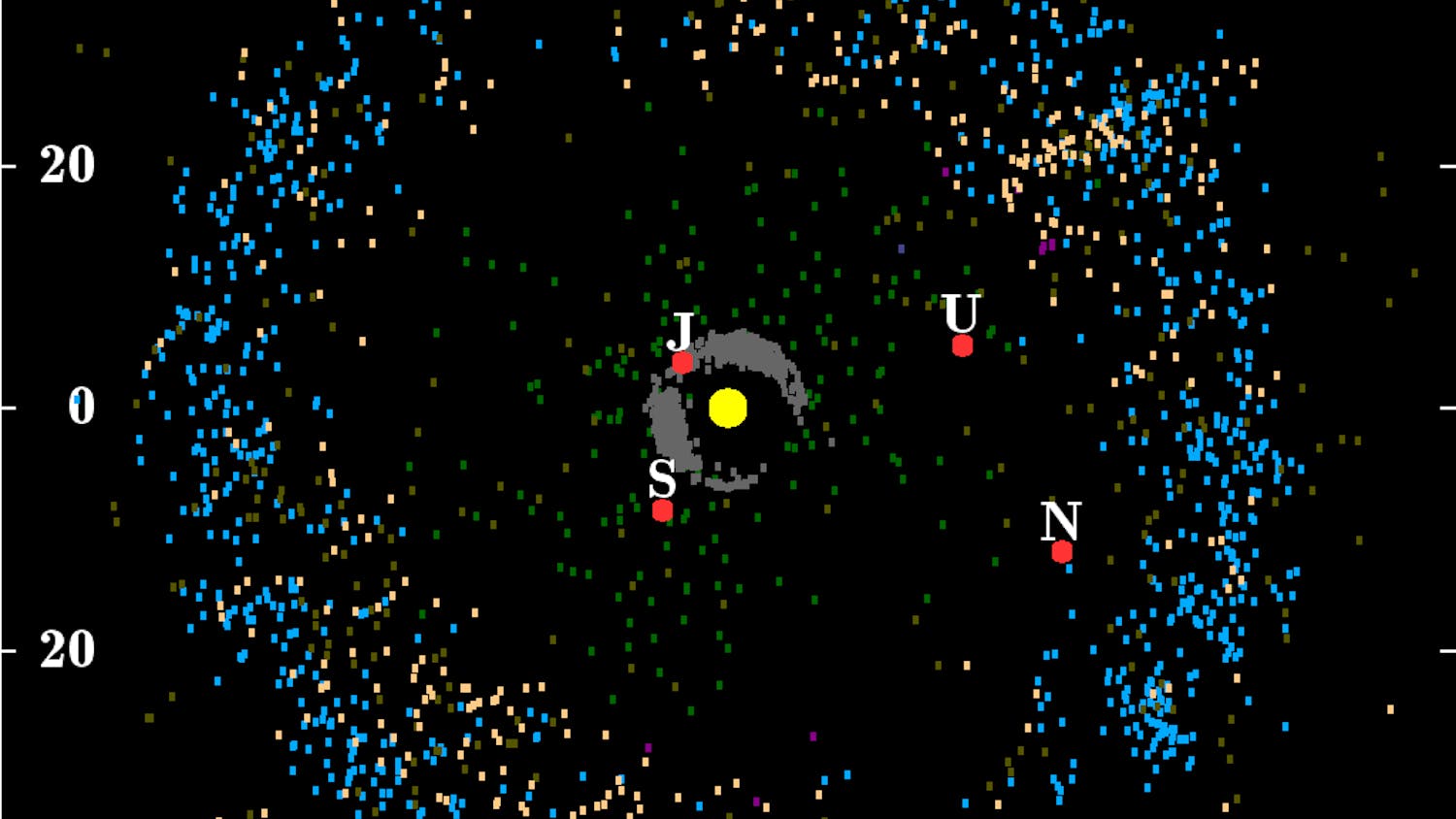During her talk on immigrant mental health last night, Assistant Professor Gabriela Barajas-Gonzalez, a faculty member in the School of Medicine at New York University, presented a timeline tracking political developments — including 9/11 and the election of Donald Trump in 2016 — against rising deportation detainment levels.
The timeline showed a sense of rising danger for immigrant communities, the central theme of Barajas-Gonzalez’s talk at the School for Public Health, called “The Threat of Immigration Enforcement: Understanding Impact on Child Well Being.” She demonstrated how changes in political rhetoric and policy have led to greater levels of stress and anxiety in immigrant communities.
The daughter of Mexican immigrants, Barajas-Gonzalez grew up in California but traveled back to Mexico during summers to see family. Her academic research has been focused on childhood development and parenting, but after the 2016 elections she said she felt the need to focus more on immigrant communities and began pursuing research linking childhood development and immigration.
“When Trump announced his candidacy, he used words that I haven’t felt in a long time,” said Barajas-Gonzalez, adding that she felt like “somebody (didn’t) want me around.”
Barajas-Gonzalez laid out evidence showing the connection between rhetoric, policy and immigrant communities’ health.
Combining the academic research on rising stress levels with her own experience with childhood developmental models, Barajas-Gonzalez was able to create a model that shows the variety of factors that impact childhood development within immigrant communities.
Her model shows that changes in social rhetoric, law and policy can impact ecosystems that are important for childhood development, including schools, the home environment and interactions with peers. One example she used drew from her work with LINKS, a research study and partnership with New York City public schools that focuses on immigrant families. Barajas-Gonzalez said that the relationship with schools and families was “business as usual” until 2016, when teachers started to report that their students were more anxious.
She quoted some first and third grade teachers who said they were observing increased aggressive behavior and bullying, as well as misinformation that was causing confusion and anxiety in school. From this teacher feedback, Barajas-Gonzalez helped create workshops with parents that could give them the knowledge and tools to help their children understand the immigration situation.
She also discussed the changing societal rhetoric and policy surrounding immigration. She cited a number of academic papers that show a clear link between divisive and hateful speech and the rise of anxiety and stress in immigrant populations. One particular study showed that birth weights decreased dramatically after an immigration raid within one community, demonstrating the impact of immigration stress on pregnancy.
“You’ve got changes in policy, you’ve got uncertainty due to the way that things are being communicated and you’ve got a significant increase in the number of people being detained on any given day,” Barajas-Gonzalez said. “You have changes in the communities that are most vulnerable.”
After Barajas-Gonzalez spoke, Carl Krueger, a staff lawyer with Dorcas International Institute of Rhode Island, talked about the immigration situation in the state. He said that there are around 40,000 undocumented immigrants in Rhode Island and that the number of deportations per year in the Boston area — which Rhode Island is a part of — has steadily increased from 2016 to 2018.
One new development Krueger mentioned was the recent use of Central Falls’ Wyatt Detention Center as a site for immigrant detention. He said that around 100 immigrants from the southern border were being held there, and that protests against that use of the facility are now occurring.
“We should be talking more about the effects of immigration on public health and that all of us have a responsibility to speak out … not just academically,” said Abdullah Shihipar GS, a master’s student of public health who helped organize the event.
Rocket Drew ’22 said that he was driven to the talk because of a class he was taking on linguistic anthropology.
“I appreciated that they talked specifically about language,” including “Trump’s tweets and the power that language has in this unique political moment,” Drew said.
Near the end of the talk, Barajas-Gonzalez and Krueger discussed what can be done to change the current situation and put immigrant communities on stronger footing. Both agreed that policy change was key.
“We really need policy change,” Barajas-Gonzalez said. “Nothing else is really going to matter.”





